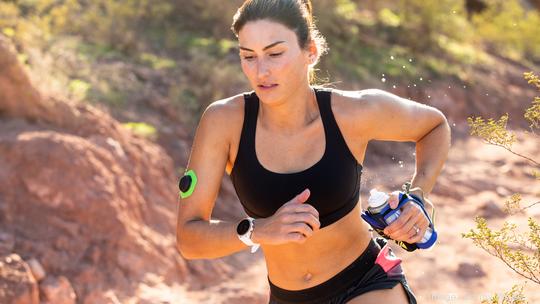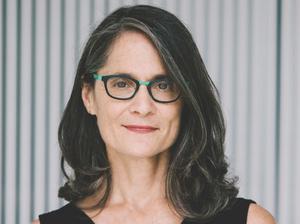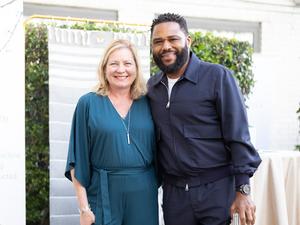
Before getting to the start line of the Boston Marathon, runners spend months practicing race-day hydration strategies. But ever-changing factors like exertion, the weather and fuel types can keep them guessing, even on marathon morning.
A new wearable technology from a Boston company is helping runners prepare for these start lines and has been tested by the likes of Boston Marathon race director Dave McGillivray and Paralympic athlete Tatyana McFadden.
Nix Biosensors is a consumer diagnostic company that makes single-use, wearable patches that tell people when and how much to drink based on sweat biomarkers. The company is planning to bring this product to market this year and is targeting endurance athletes as its first users.
The company was born out of Harvard Innovation Labs and brought to life in part by CEO Meridith Cass, who was an entrepreneur-in-residence at Harvard Business School. The company’s vision was to blur the lines between patient and consumer.
“I was all about how do we take medical diagnostics and best practices and legitimacy and true electrochemical markers of health and wellness and put it in consumers’ hands in a way that wearables had not been able to do,” Cass told BostInno.
Most wearables track things like your steps, heart rate or sleeping time, Cass said. Nix’s technology focuses on hydration because it requires more sophisticated biometric measurements and is a pain point impacting many groups of people.
Cass said the company’s first product, the Nix hydration biosensor, is made of three components: A disposable patch that adheres to the user’s arm, an electronic pod that attaches to the patch and an app that presents the data.
“What that system is doing is then collecting sweat off the arm, off that bicep region,” Cass said. “It’s measuring that sweat 100 times every second and then doing some data processing and then sending all that data to… your phone, but we have some other hardware integrations like Garmin watches and bike computers.”
Users can see their cumulative fluid and electrocyte losses over the duration of an activity, Cass explained. The app can be set to send notifications to a user’s phone or Garmin indicating how much the person should drink in ounces or gulps to replenish these losses.
While runners can use this as a one-time tool during a marathon, Cass said the hope is runners will use it during their training to better prepare for a race. The app also captures environmental data like heat and humidity, which helps it give recommendations for future runs.
“What it builds over time is this correlation for every individual athlete,” Cass said. “We then take that database of personal data, not the whole population data, but just that individual athlete’s data, and then feed it back for a workout in the future.”
Nix first tested its sensors with athletes completing the 2018 Boston Marathon. Cass said the team hopes this is their final test before bringing the product to market this year.
“It’s kind of nice to come full circle in that way, in our hometown marathon,” Cass said.
Sign up for The Beat, BostInno’s free daily innovation newsletter from BostInno reporter Hannah Green.
Unlike last time, Nix worked with athletes in their buildup to Boston. Nix partnered with the running company Tracksmith during some of its group runs and worked with McGillivray, who is directing his 35th Boston Marathon and running the race for the 50th time. McGillivray is known for driving back to the start line in Hopkinton and completing the race at night after everyone else has finished.
“I have been with Nix on this journey for some time testing very early versions of the biosensor as well as participating in sweat tests with the Nix physiology team,” McGillivray said in an email. “What they are doing is truly groundbreaking and will no doubt help me and many others fine tune our race hydration strategies to run safer, stronger and ultimately finish with better results.”
Nix is taking pre-orders for its $99 starter pack, which contains the electronic pod, four patches, a charger case and USB cord. A four-pack of refill patches costs $25. The electronic pod holds a charge for 24 hours.
Nix is also piloting its technology among other groups, including with the Boston Fire Department.
“The need for hydration management, we sort of felt was as fundamental as humankind,” Cass said. “It made it an easy place to say, if there’s a well-defined problem here and we have a technology that can solve it, let’s start to paint this roadmap. That roadmap looks like athletes, soldiers, laborers and then on to more traditional health care settings.”








